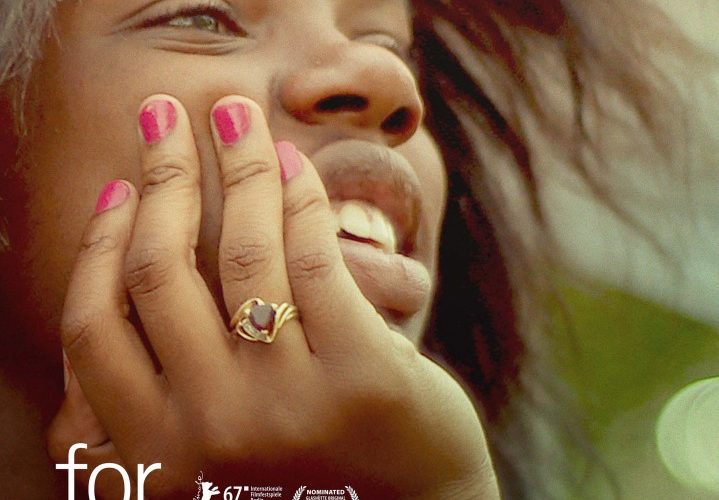Opening in a court room, For Ahkeem finds its protagonist Daje, an African American girl from the inner city of North St. Louis, sentenced to Judge Jimmy Edwards’ Inner City Academy (ICA), an alternative high school for those with violent and troubling records, providing one-on-one academic counseling and services. It would appear her path to college seems blocked again by an upbringing in a rough, economically disadvantaged neighborhood, although she does have a support network in her mother and well-meaning administrators at ICA.

Set partly during the Ferguson turmoil in the wake of Michael Brown’s death, For Ahkeem is a film in the classic cinéma vérité tradition, shinning a light on the plight of our inner cities. The film is a great deal less hopeful than the post-Freddie Gray Baltimore-set Step, destined to be a crowdpleaser this summer. For Ahkeem chooses to follow one young African American struggling to break free and make a better life for her child. The obstacles are tremendous and grow dire once she learns she’s pregnant with her son Ahkeem, giving birth as Ferguson erupts while wondering what the future holds for her newborn.
Arriving during her senior year, her pregnancy and motherhood ultimately present an added challenge as she struggles to maintain a passing GPA, taking a heavy course load of 13 classes in her final semester, online and at ICA. Her boyfriend Antonio also struggles to adapt to his responsibilities and stay out of legal trouble. Directed by Jeremy S. Levine and Landon Van Soest, their focus, above all, else hinges upon the extreme uncertainty in the life of their protagonist, generating tremendous empathy while the filmmakers don’t offer much in the way of solutions. In one striking scene, a group of guidance counselors tell Daje simply that she’s a “grown ass women” and that she should simply buckle down and get the work done. In another scene, Judge Edwards rattles off alarming statistics in attempt to scare his students straight — if only more had a leg-up. Growing up North St. Louis requires one grows up fast.

For Ahkeem is an intimate coming-of-age story with the kind of minor triumphs many these kinds of documentaries have. Daje unfortunately isn’t given the space to engage with the kinds of experiments that, for instance, the hero of Richard Linklater’s Boyhood is able to. The consequences on the knife’s edge of poverty are far more real.
Told simply and in a straightforward manner, it’s reminiscent of Andrew Cohn’s Night School, a terrific (and undistributed) documentary that screened at Tribeca last year about mostly African American adults returning to high school in Indianapolis. For Ahkeem documents a reality our politicians may not grasp when crafting policies. An illuminating film about poverty that one hopes can be a call for action even if the film itself doesn’t directly encourage advocacy, it’s clear that hashtags and temporary fixes aren’t enough to change Ahkeem’s life.
For Ahkeem screened at the Montclair Film Festival and opens on October 13.

